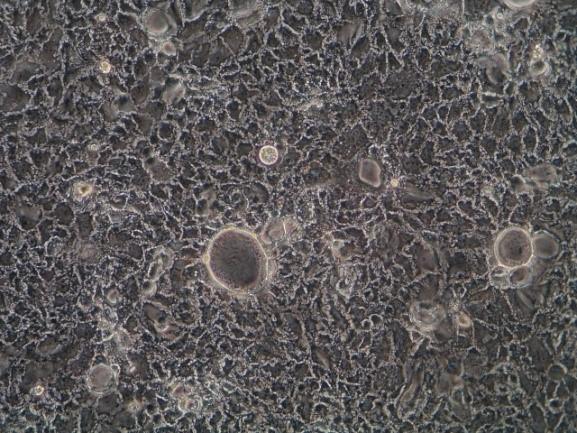A new experimental unit built at the Politecnico di Milano within the ERC project ‘MINERVA’ of Horizon 2020

Credit: Politecnico di Milano
Two new laboratories of the Politecnico di Milano, “MINERVA” and “ATHENA”, called “TechnoBiology” labs, have been officially presented today to the scientific community.
The main purpose of the TechnoBiology labs is the realization of forefront technological devices and cellular models for the study of biochemical mechanisms that involve multiple organs and biological systems of our body, both in physiological and pathological conditions.
This is the case of the microbiota-gut-brain axis, the set of pathways that link the intestinal bacterial flora (microbiota) and the functioning of our brain, topic of the ERC project MINERVA, funded with 2 million Euros by the European Community within the Horizon 2020 ERC Consolidator Grant 2016 call, which allowed the set-up of the two laboratories.
The laboratories, fully equipped with up-to-date instruments, will promote interaction between engineers and researchers working in Life Sciences field for the development of organ-on-a-chip devices capable of hosting advanced in vitro models based on cells (Laboratory MINERVA) and bacteria (ATHENA Laboratory) grown both in 2D or 3D.
“In our vision” states Carmen Giordano, Principal Investigator of the ERC project MINERVA and leader of the TechnoBiology labs, “this new experimental unit will become a virtuous example of an interdisciplinary working area where engineers, biologists, biotechnologists and clinicians operate together to tackle new, complex technological and scientific challenges. The scope of the ERC project MINERVA is the first example: to create an engineered platform that allows the study of the impact of the intestinal microbiota on the functioning of our brain has potential significant impact for highly debilitating neurodegenerative diseases, that nowadays can rely only on symptomatic and palliative therapies”.
The achievement of one of the main objectives of the MINERVA project is recent: the realization of the first prototype of the organ-on-a-chip device, basic unit of the MINERVA platform, necessary to model in vitro the organs and biological systems involved in the cross-talk between our intestinal microbiota and the brain.
The TechnoBiology labs, with an extension of 100 square meters, are hosted in the Leonardo Campus on the second floor of the Department of Chemistry, Materials and Chemical Engineering “Giulio Natta” of the Politecnico of Milan (Italy) where they join the existing MechanoBiology labs, directed by Manuela T. Raimondi who coordinates three ERC projects, in a new research area collectively called Biology labs.
On the day of the inauguration, the research vice-chancellor Prof.ssa Donatella Sciuto, the Director of the “Giulio Natta” Department Prof. Maurizio Masi, Prof.ssa Manuela T. Raimondi and Prof.ssa Carmen Giordano presented the new laboratories to the audience and Prof. Pasquale Striano, medical director of IRCSS “G. Gaslini” of Genova, spoke of still unresolved clinical problems involving the cross-talk between intestinal microbiota and brain function in which a strongly interdisciplinary approach could make the difference.
“This project has received funding from the European Research Council (ERC) under the European Union’s Horizon 2020 research and innovation programme (grant agreement No 724734)”.
###
Media Contact
Cristina Perini
[email protected]
39-022-399-2508
Original Source
https:/




